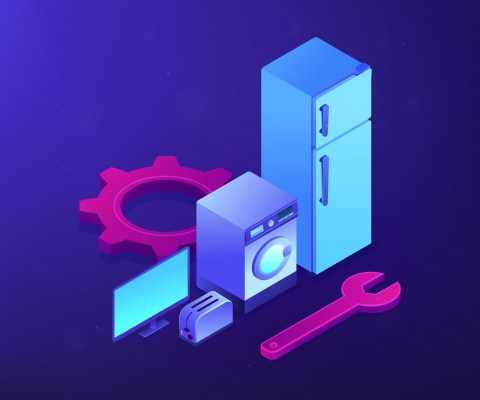
Salesforce has been adding artificial intelligence to all parts of its platform for several years now. It calls the underlying artificial intelligence layer on the Salesforce platform Einstein. Today the company announced some enhancements to its field service offering that take advantage of this capability.
Eric Jacobson, VP of product management at Salesforce says that when COVID hit, it pretty much stopped field service in its tracks during April, but like many other parts of business, it began to pick up again later in the quarter, and people still needed to have their appliances maintained.
“Even though we’re sheltering in place, the physical world still has physical needs. Hospitals still have to maintain their equipment. Employees still need to have equipment replaced or repaired while working at home, and people still need their washing machine [or other appliances] repaired,” Jacobson said.
Today’s announcements are designed in some ways for a COVID world where efficiency is more critical than ever. That means the field service tech needs to be prepared ahead of time on all of the details of the nature of the repair. He or she has to have the right parts and customers need to know when their technician will be there.
While it’s possible to do much of that in a manual fashion, adding a dose of AI helps streamline and scale that process. For starters, the company announced Dynamic Priority. Certainly humans are capable of prioritizing a list of repairs, but by letting the machine set priority based on factors like service agreement type or how critical the repair is, it can organize calls much faster, leaving dispatchers to handle other tasks.
Even before the day starts, technicians receive their schedule and using machine learning, can determine what parts they are most likely to need in the truck for the day’s repairs. Based on the nature of the repair and the particular make and model of machine, the Einstein Recommendation Builder can help predict the parts that will be needed to minimize the number of required trips, something that is important at all times, but especially during a pandemic.
“It’s always been an inconvenience and annoyance to have somebody come back for a follow up appointment. But now it’s not just an annoyance, it’s actually a safety consideration for you and for the technician because it’s increased exposure,” Jacobson explained
Salesforce also wants to give the customer the same capability, they are used to getting in a ride share app, where you can track the progress of the driver to your destination. Appointment Assistant, a new app gives customers this ability, so they know when to expect the repair person to arrive.
Finally, Salesforce has teamed with ServiceMax to offer a new capability to get the big picture view of an asset with the goal of ensuring uptime, particularly important in settings like hospitals or manufacturing. “We’ve partnered with a long-time Salesforce partner ServiceMax to create a brand new offering that takes industry best practice and builds it right in. Asset 360 builds on top of Salesforce field service and delivers those specific capabilities around asset performance insight, viewing and managing up time and managing warranty processes to really ensure availability,” he said.
As with all Salesforce announcements, the availability of these capabilities will vary as each in various forms of development. “Dynamic Priority will be generally available in October 2020. Einstein Recommendation Builder will be in beta in October 2020. Asset 360 will be generally available in November 2020. Appointment Assistant will be in closed pilot in US in October 2020,” according to information provided by the company.
[ad_2]
Source link

